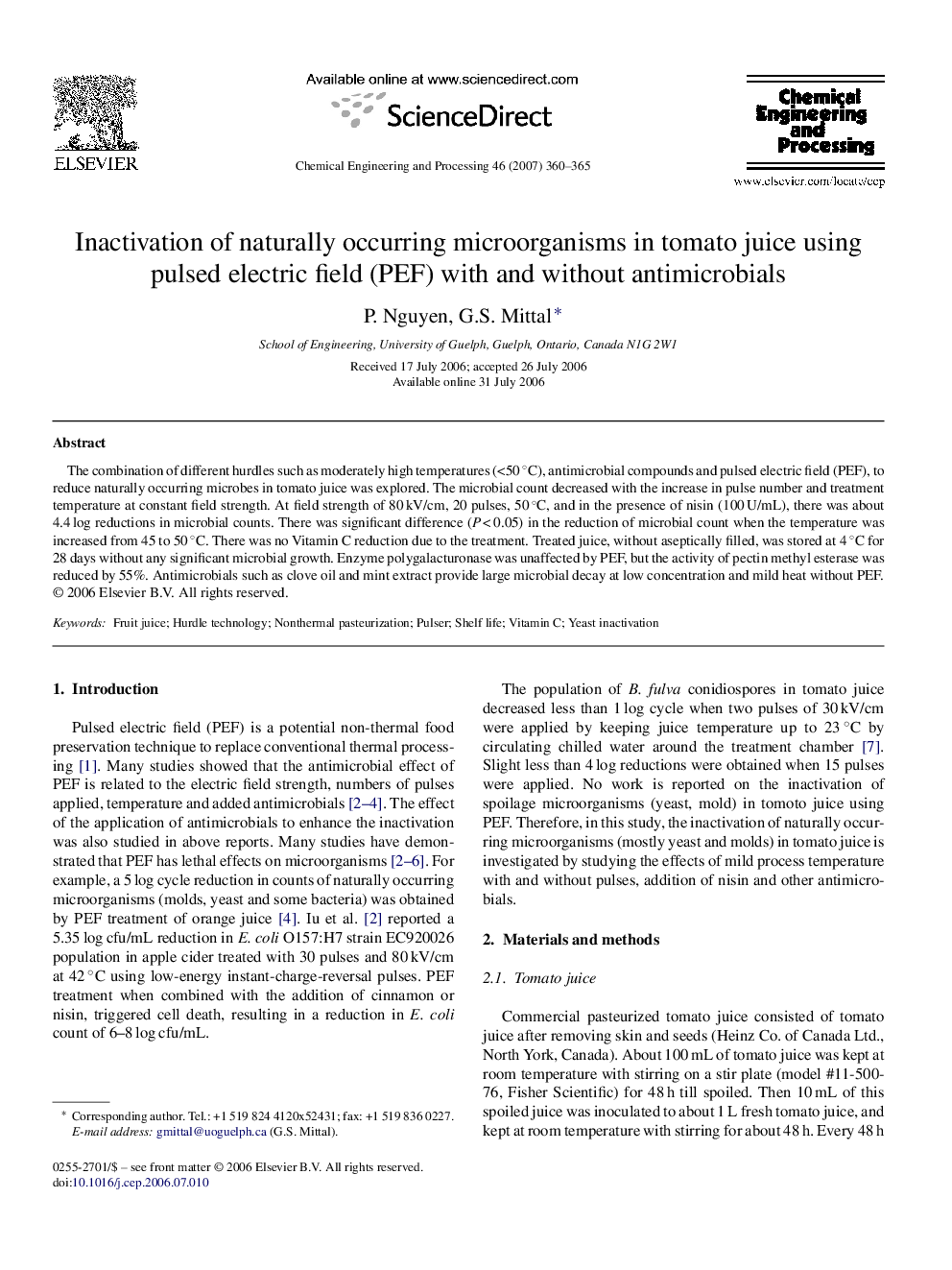| Article ID | Journal | Published Year | Pages | File Type |
|---|---|---|---|---|
| 688539 | Chemical Engineering and Processing: Process Intensification | 2007 | 6 Pages |
The combination of different hurdles such as moderately high temperatures (<50 °C), antimicrobial compounds and pulsed electric field (PEF), to reduce naturally occurring microbes in tomato juice was explored. The microbial count decreased with the increase in pulse number and treatment temperature at constant field strength. At field strength of 80 kV/cm, 20 pulses, 50 °C, and in the presence of nisin (100 U/mL), there was about 4.4 log reductions in microbial counts. There was significant difference (P < 0.05) in the reduction of microbial count when the temperature was increased from 45 to 50 °C. There was no Vitamin C reduction due to the treatment. Treated juice, without aseptically filled, was stored at 4 °C for 28 days without any significant microbial growth. Enzyme polygalacturonase was unaffected by PEF, but the activity of pectin methyl esterase was reduced by 55%. Antimicrobials such as clove oil and mint extract provide large microbial decay at low concentration and mild heat without PEF.
